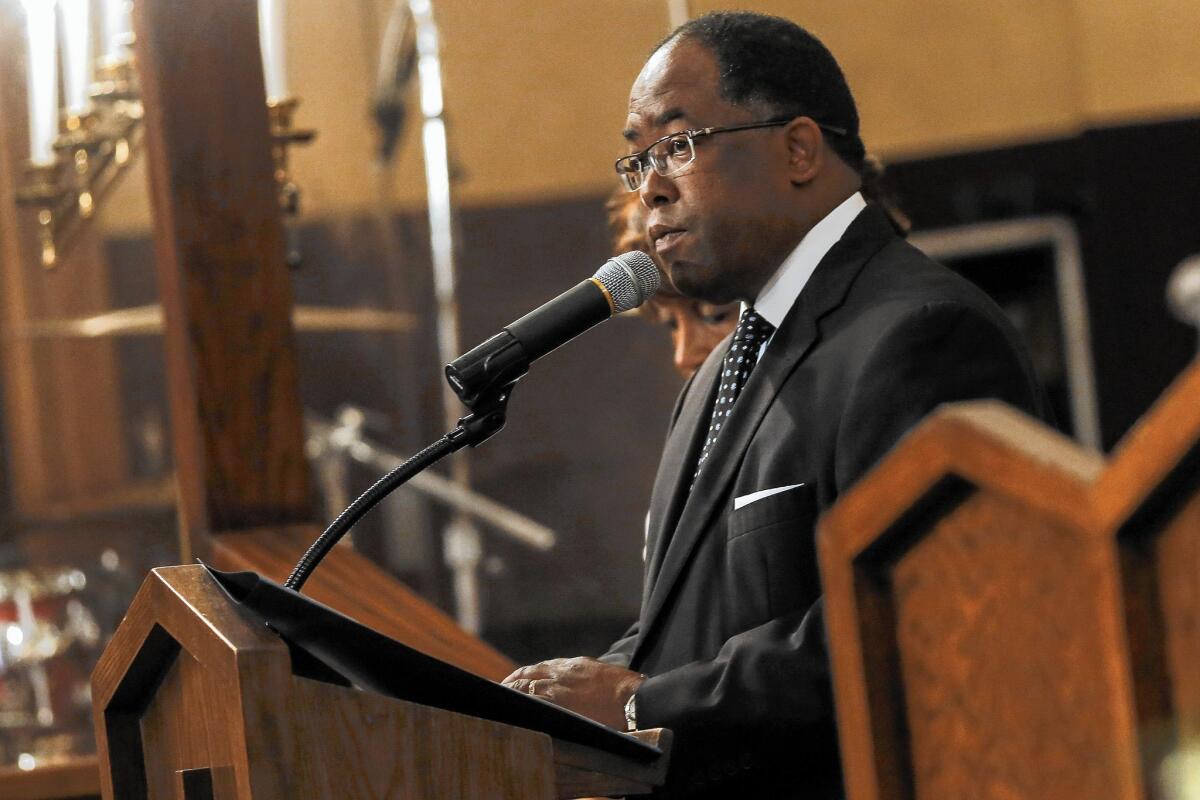L.A. County makes it easier for ex-inmates to get Section 8 housing

In a close vote, Los Angeles County supervisors decided Tuesday to make it easier for people released from jail or prison to apply for federally subsidized housing.
The county had previously rejected any applicant who was on probation or parole from receiving rent assistance under Section 8 of the federal housing act.
But in calling for the change, Supervisors Sheila Kuehl and Mark Ridley-Thomas said that policy only “prevents family reunification and integration back into [the] community” and makes rehabilitation tougher.
Under the new county guidelines, an applicant’s probation or parole status will not matter and he or she generally will not be disqualified for drug offenses unless they happened within the last two years.
Stricter standards will remain for violent offenses. Under federal guidelines, registered sex offenders are not allowed in the program.
The county distributes the federal aid to renters in cities that lack their own housing agencies, as well as in unincorporated areas.
In a 3-2 decision, Ridley-Thomas and Kuehl were joined by Supervisor Hilda Solis, with Supervisors Don Knabe and Michael D. Antonovich opposing a loosening of the standards.
Kuehl noted that landlords will still be able to screen applicants and that the change in standards does not give people with criminal backgrounds any sort of priority over others.
“It’s simply about giving people who are trying to reform their lives a fair shot at living someplace, not just on the street,” she said.
The supervisors considered relaxing the standards for county-owned public housing as well, but decided to keep those in place after drawing complaints from residents — including senior citizens — worried about an influx of criminals.
Renee Contreras, 54, has lived in the Nueva Maravilla public housing development in East Los Angeles for the last seven years after spending 10 years on the waiting list. She told the supervisors that residents and officials have worked hard to root out gangs and crime in the area and said she is worried that allowing more ex-offenders to rent units would jeopardize that progress. Contreras said she spoke from experience as a former addict who has been sober for 15 years.
“It didn’t take me two years to get clean — it took me seven years,” she said. “You don’t plant weeds in a flower garden. We have seniors. We don’t need a bad seed which will grow and grow.”
On the other side of the argument were people such as Larry Davis, 52, a single father who lives in subsidized housing in North Hills and works for a Van Nuys-based nonprofit. Davis was able to get into the Section 8 program through the city of Los Angeles despite having a criminal record and having served time in prison. While waiting for the assistance, he and two of his daughters lived in a shelter, he said. Once they were housed, he was able to get his third daughter out of the foster care system and reunite the family, he said.
“If you give an individual some kind of hope or reason to stay on the right path, then that always makes a difference, and I’m here to let you know it does,” he said.
The county’s criminal background standards are stricter than those imposed by the city of Los Angeles’ housing authority and stricter than required by the federal government.
Federal officials have encouraged local housing authorities to consider relaxing criminal background screens. In a letter to housing authority directors sent in 2011, U.S. Department of Housing and Urban Development officials noted that ex-offenders who are unable to find stable housing are more likely to re-offend.
“The Department encourages you to allow ex-offenders to rejoin their families in the [housing] programs, when appropriate,” HUD Secretary Shaun Donovan wrote.
The number of applicants screened out because of criminal background issues under the current policy is relatively small. A county housing authority spokeswoman said that in 2014, 7,574 people were submitted for criminal background screenings in the Section 8 program and that only 120 failed to pass.
The changes may be slow to have an effect. The housing authority has a waiting list of nearly 43,000 applicants for its Section 8 program. Housing Authority director Sean Rogan said he expects about 1,200 spots to open up this year.
Follow @sewella for news about county government.
More to Read
Sign up for Essential California
The most important California stories and recommendations in your inbox every morning.
You may occasionally receive promotional content from the Los Angeles Times.











